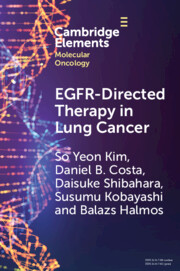Over-expression or aberrant signalling of the erbB family members epidermal growth factor receptor (EGFR) and HER2 (erbB2/neu) have been associated with the pathogenesis of the malignant phenotype. In addition, high levels of EGFR and HER2 expression have been shown to correlate with poor prognosis and also implicated in disease progression. Signal transduction inhibitors (STIs) have been developed with specifically target these receptors and include the small molecule tyrosine kinase inhibitor gefitinib (IressaTM) which targets the EGFR and the humanised monoclonal antibody trastuzumab (HerceptinTM), which has anti-tumour activity against HER2. Studies however, have indicated that de novo or acquired resistance to these agents is a major clinical problem. Cancer cells are highly adaptive and can readily switch from one receptor signalling pathway to another in order to maintain growth or cell survival, a process paradoxically, that in many instances is induced by the anti-tumour agents themselves, ultimately limiting their activity and promoting resistance. Evidence is accumulating which demonstrates that signalling interplay occurs between the EGFR/HER2 and the insulin-like growth factor -1 receptor (IGF-1R) and the article will focus on the growth factor pathway switching that occurs between these receptors which can influence the effectiveness gefitinib and trastuzumab.


